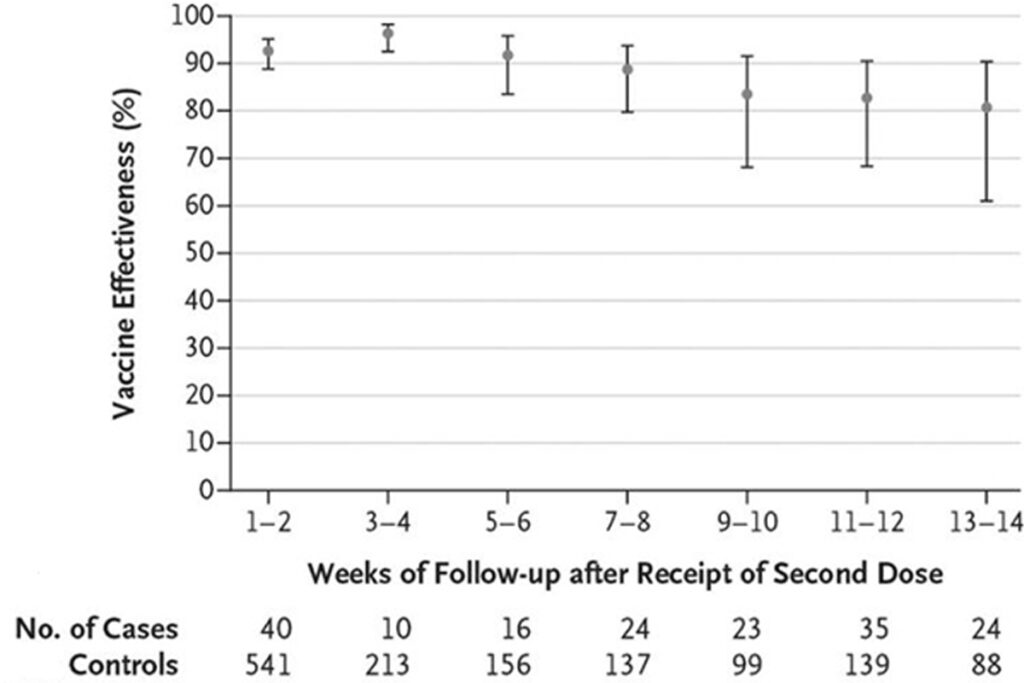Hilary Babcock, MD, MPH, professor of medicine and Jennie Kwon, DO, MSCI, assistant professor of medicine participated in a CDC led multicenter study, published in the New England Journal of Medicine, showing that the Pfizer and Moderna COVID vaccines were highly effective under real-world conditions in preventing symptomatic COVID19 in health care personnel.
Drs. Kwon and Babcock wish to thank all of the health care professionals and research teams who made this work possible!
You may access the entire article, Effectiveness of mRNA Covid-19 Vaccine among U.S. Health Care Personnel.
